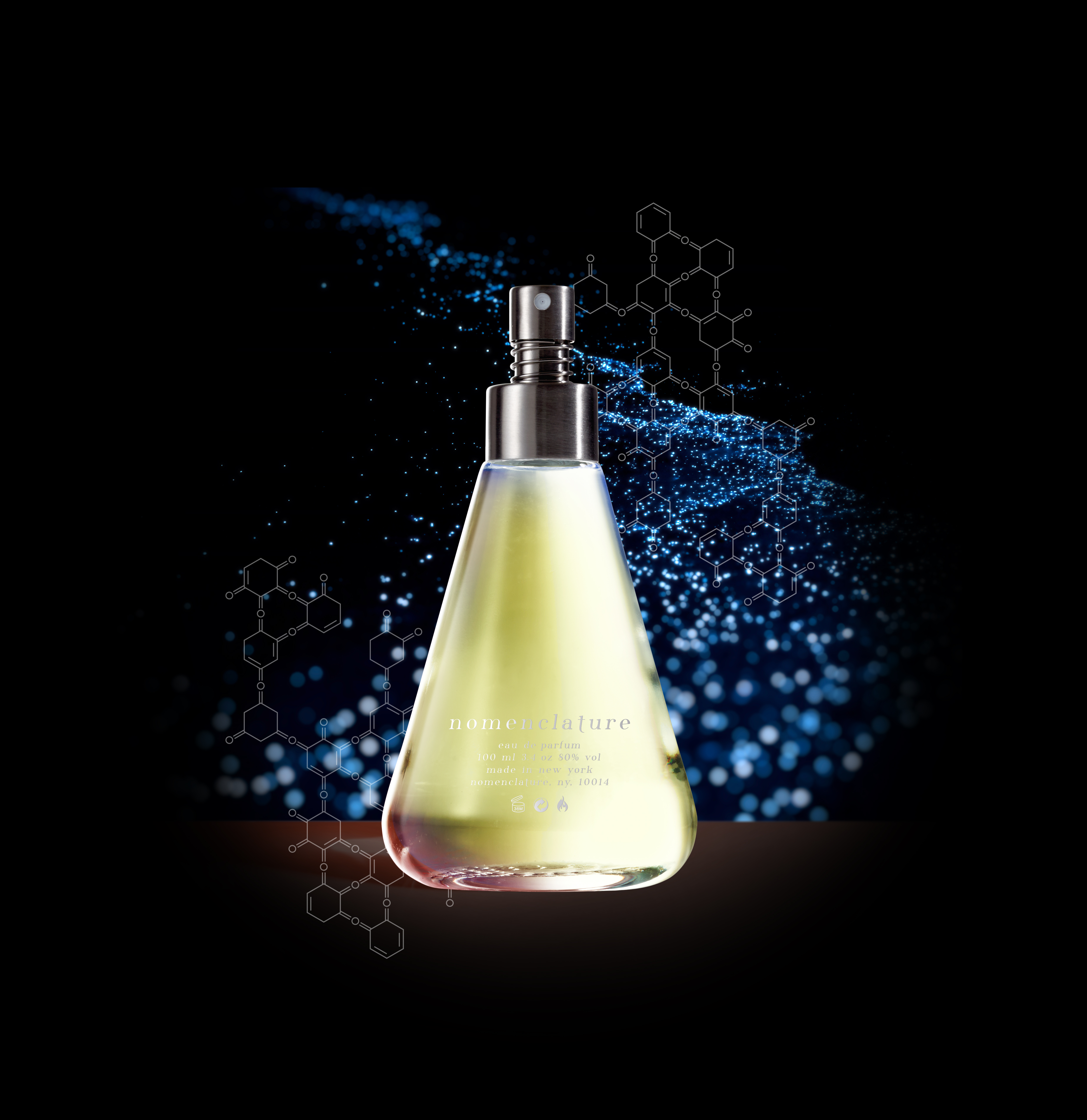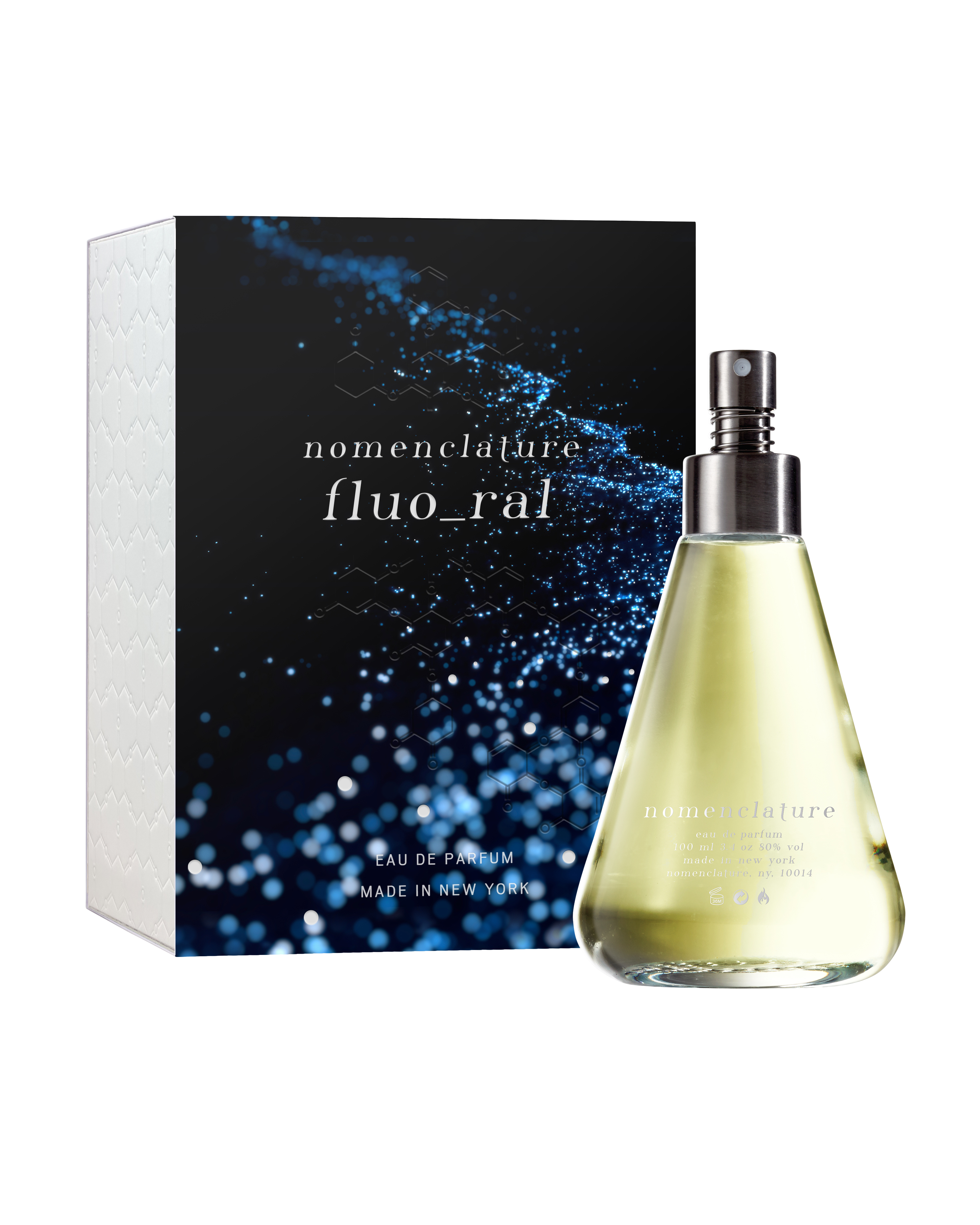
Discovered by Pfizer chemists in 1965 doing research on tranquilizers, Calone turned out to be more efficient when inhaled.
Its sea-spray, green and melon facets were so powerful that perfumers took over two decades to fully exploit the molecule.
It went on to spawn the most iconic fragrance families of the 90s: aquatic fragrances.
A victim of its success, Calone has been dormant for the past two decades. With fluo_ral,Nathalie Feisthauer introduces it into a radically different ecosystem.

In the 90s, Calone was used for clean, limpid aquatic scents.Here, Nathalie Feisthauer amps up its transparency by backlighting it with green notes so bright they veer on the fluorescent.
Rhubarb, blackcurrant bud and tomato leaf add both the vegetal scents of a moonlit seaside jungle an the eerie glow of bioluminescent plankton edging indigo waves
Then she sets it off against the ink-black depths of Somalian incense, its metallic facets adding their cool gleam to the saline effects of Calone. In this powerfully contrasted and textured environment, the molecule evolves into a new olfactory life form. This is marine, but not as we know it.
The Perfumer
Nathalie Feisthauer
The Scent
Glow Brighter in the Dark

Discovered by Pfizer chemists in 1965 doing research on tranquilizers, Calone turned out to be more efficient when inhaled.
In the 90s, Calone was used for clean, limpid aquatic scents.
Here, Nathalie Feisthauer amps up its transparency by backlighting it with green notes so bright they veer on the fluorescent.

Rhubarb, blackcurrant bud and tomato leaf add both the vegetal scents of a moonlit seaside jungle an the eerie glow of bioluminescent plankton edging indigo waves.
Then she sets it off against the ink-black depths of Somalian incense, its metallic facets adding their cool gleam to the saline effects of Calone. In this powerfully contrasted and textured environment, the molecule evolves into a new olfactory life form. This is marine, but not as we know it.
The Perfumer
Nathalie Feisthauer
